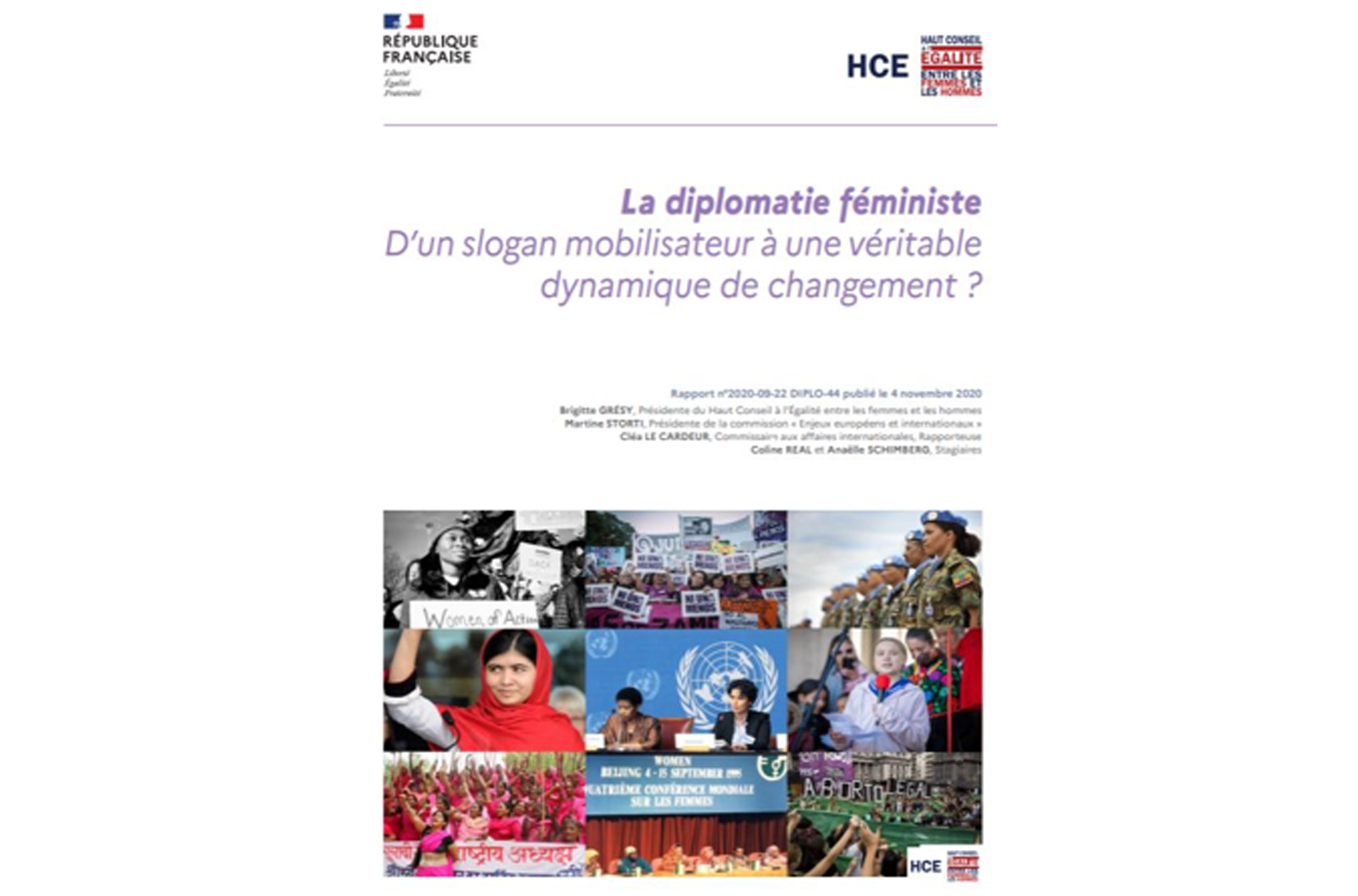
https://www.haut-conseil-egalite.gouv.fr/IMG/pdf/rapport-diplomatie_feministe-v4-2.pdf
Since March 2018, France has used the expression “feminist diplomacy” when referring to its foreign policy activities as they involve the role of women’s equality. The French Haut Conseil-Egalité (High Council for Equality, HCE) requested an assessment of France’s international strategy for achieving equality between women and men during the years 2018-2022. First, they agreed it was necessary to question the meaning of this concept. Is this a simple linguistic phrase, or does it represent awareness at the highest level of the importance of integrating gender equality into French foreign policy and therefore represent a major advance?
By using the term “feminist diplomacy” since 2018, France joined the small number of countries that recognise this concept and the concept of “feminist foreign policy”. These include Sweden since 2014, Canada since 2017 and Mexico since January 2020. There is no internationally agreed text that defines this concept, and the reference to feminism and its introduction into the field of foreign policy is new. What it means at this stage is flexible and varies between these few States.
Unlike Sweden, France has not developed a theoretical framework and has favoured a pragmatic approach. Driven by President Macron’s commitment to make gender equality the great cause of his five-year term, the term “feminist diplomacy” is used to defend the rights of women in an international context. Despite this global ambition, the scope of action of French feminist diplomacy is nevertheless restricted, focused up to now mainly on diplomacy in a strict sense and on official development assistance. It does not include, unlike for Sweden and Canada, all areas of foreign policy – such as, in particular, defence, security policy and trade policy.
The HCE has two main objectives in this 64-page report (in French): the promotion of a universal concept of feminism as against all forms of relativism, whether religious, cultural or political, as well as the transformation of power relations (i.e. abolition of the patriarchal system). To this end, to carry out feminist diplomacy requires an integrated approach to equality that applies in all areas of foreign policy – diplomacy in the strict sense, but also official development assistance, defense and security, trade, environment, and culture – and at all stages (preparation, implementation, evaluation).
The Haut Conseil-Egalité’s report sets out the elements of a definition of this concept and offers 19 detailed recommendations intended to strengthen this framework and its implementation.
The report goes on to outline the meaning of this concept in both Canadian and Swedish foreign policy. It then lists various high level reports from French government officials in 2018 and 2019 that address the relevant issues – i.e. the Minister of Europe and Foreign Affairs, the Secretary of State for Equality, and the President of the Republic.
The central point is that France has declared that the defence of women’s rights and equality between women and men is the basis of its foreign policy, an approach that is articulated in the promotion of and respect for international commitments in human rights and women’s rights. This document goes on for another 30+ pages to outline all the areas in which these goals have already been articulated and where and how they may still be achieved.



